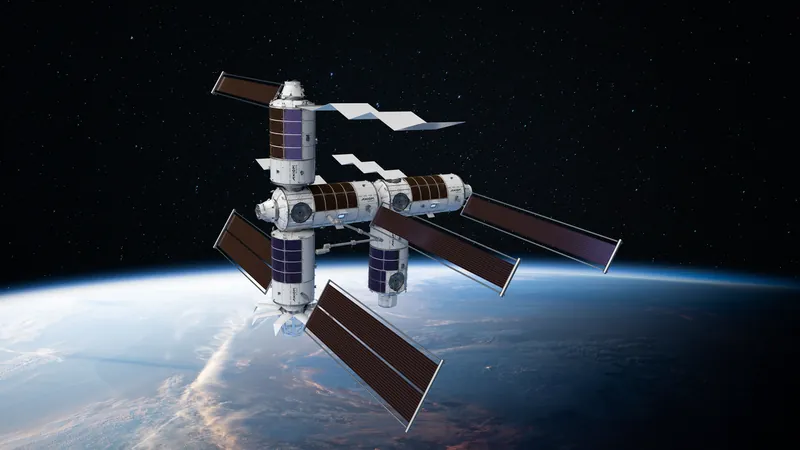
Axiom Space Station Set to Depart from ISS Two Years Ahead of Schedule
2024-12-26
Author: Wei
Axiom Space Station Set to Depart from ISS Two Years Ahead of Schedule
In a thrilling turn of events for the world of space exploration, NASA has announced that the private Axiom Space Station may break free from the International Space Station (ISS) as early as 2028, a full two years ahead of its original timeline. This development comes as the ISS approaches its anticipated demise in roughly five years, prompting NASA to plot out its next steps in low Earth orbit, including the integration of Axiom's innovative plans.
Axiom Space, awarded a significant $140 million contract by NASA in 2020, has been tasked with adding a habitat module to the ISS. This module, known as Hab-1, marks the beginning of what is intended to evolve into an independent space station, moving beyond the traditional governmental reach into commercial space operations. The collaboration is evidence of growing efforts to commercialize orbiting activities and diversify human presence in space.
The latest updates indicate that Axiom’s Payload Power Thermal Module (PPTM) will be the first component launched towards the ISS, slated for delivery in 2027. This module will play a crucial role in enabling free-flight capabilities for the future Axiom station. The strategy entails attaching the PPTM to an ISS docking port, before it is detached and linked to the Hab-1 module, facilitating the station's transition into an independent entity and providing a clear logistical route for future expansions.
Angela Hart, the manager of NASA’s Commercial Low Earth Orbit Development Program, emphasized the importance of this collaboration, stating, “The updated assembly sequence has been coordinated with NASA to support both NASA and Axiom Space needs and plans for a smooth transition in low Earth orbit.” This synergy is critical as NASA pivots towards procuring commercial services to meet its microgravity needs.
Moreover, the changes allow NASA increased flexibility in the integration of the U.S. Deorbit Vehicle, a modified SpaceX Dragon spacecraft intended for the ISS. Axiom’s COO, Mark Greeley, expressed the company's readiness to adapt their development plans, citing the necessity to accommodate varying requirements and maximize efficiency.
As the countdown to the future of commercial space stations begins, the world watches with bated breath for what promises to be a pioneering achievement in space exploration. The upcoming years stand to usher in a new era that blends commercial interests with space science, potentially paving the way for extended human presence beyond Earth. Stay tuned as we bring you the latest updates on this groundbreaking venture!
 Brasil (PT)
Brasil (PT)
 Canada (EN)
Canada (EN)
 Chile (ES)
Chile (ES)
 Česko (CS)
Česko (CS)
 대한민국 (KO)
대한민국 (KO)
 España (ES)
España (ES)
 France (FR)
France (FR)
 Hong Kong (EN)
Hong Kong (EN)
 Italia (IT)
Italia (IT)
 日本 (JA)
日本 (JA)
 Magyarország (HU)
Magyarország (HU)
 Norge (NO)
Norge (NO)
 Polska (PL)
Polska (PL)
 Schweiz (DE)
Schweiz (DE)
 Singapore (EN)
Singapore (EN)
 Sverige (SV)
Sverige (SV)
 Suomi (FI)
Suomi (FI)
 Türkiye (TR)
Türkiye (TR)
 الإمارات العربية المتحدة (AR)
الإمارات العربية المتحدة (AR)